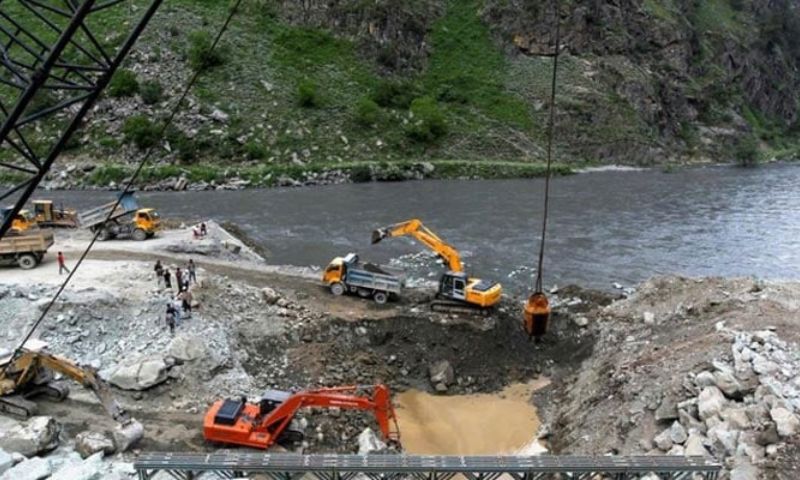India has started construction of two contentious hydro projects, Kiru and Kwar, on the Chenab River, sparking concerns over potential violations of the Indus Waters Treaty (IWT) 1960, as reported by The News.
A legal dispute is already underway between Pakistan and India regarding the flawed designs of the 330MW Kishanganga and 850MW Ratle hydropower projects on Pakistan’s rivers. The two nations are entangled in a legal battle in the court of arbitration and with a neutral expert over these projects.
Pakistan has recently raised objections to the designs of the Kiru hydropower project, capable of generating 624MW, and the Kwar hydroelectric power project of 540MW during discussions at the Permanent Indus Waters Commission (PIWC). According to the IWT, India is obligated to share the designs of its projects with Pakistan.
Situated along the Chenab River, the Kiru hydropower project is located near the villages of Patharnakki and Kiru, approximately 42 kilometers from Kishtwar. Pakistan has submitted objections regarding components such as spillways, freeboard, and pondages for both Kiru and Kwar projects.
Despite Pakistan’s objections, India appears to be repeating design issues similar to those seen in the Kishanganga and Ratle projects. The ongoing legal battle aims to address these concerns and prevent India from pursuing future projects that violate the IWT.
The Kiru project, developed as a run-of-river scheme in the Kishtwar district of Indian Illegally Occupied Jammu and Kashmir (IIOJK), is a joint venture between National Hydroelectric Power (NHPC) and Jammu & Kashmir State Power Development (JKSPDC). With environmental clearance granted in 2016, the project is set to commence commercial operations in July 2025, featuring a concrete gravity dam and various associated components, including turbines and tailrace tunnels.


